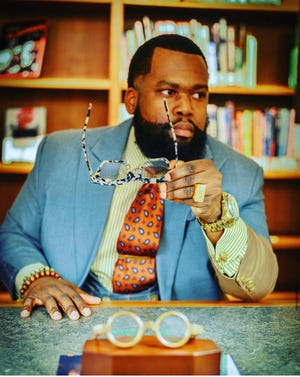Black influence should be represented at every level of fashion
African Americans have always taken pride in their attire. Fashion makes an indelible statement about our culture, so much so that Ralph Lauren Corp. recently paid homage to the elite style of Historically Black Colleges and Universities (HBCUs) with its first all-Black fashion campaign, where the models, photographers and creative directors are all Black. Celebration of Black pride, style and history from a multibillion-dollar fashion brand is truly rare, and while we applaud this, much more work needs to be done.
Recently, talk of celebrating diversity has increased. In 2020, we watched on television as the Black Lives Matter movement illustrated the inequities Black people endure throughout the world. These injustices span well beyond policing; They impact the fashion industry, including manufacturing, sales and advertising.

However, while the world grappled with the pandemic during the past two years, much to the fashion industry’s surprise, sales of eyewear reached a new level of attention. The world finally started to see Black fashion creators in a new light.
The fact remains that Black people are underrepresented in the fashion industry. This underrepresentation includes the lack of Black people in the boardrooms of major fashion houses and executive teams of major fashion magazines. Despite the growing recognition of the importance of diversity, marketing materials of brands that Black consumers financially support definitely lack people of color.
Moreover, it is discouraging to see the lack of Black representation when there is obvious Black influence on the products produced. For far too long, Black designs and trends are used as a blueprint, but Black people are not included in the production, distribution or display of the fashion.
Legitimate Black influence should be represented at every level of fashion. It is not enough to just have Black models in ad campaigns. We at J. Franklin Wood You Specs and Lady E Specs, two local, Black-owned fashion businesses, are challenging this status quo. We employ Black creators, hire Black executives and contract multicultural models for our eyewear. We do this to provide people of color the chance to thrive in all levels of fashion and to help ensure diverse representation.
For fashion brands to legitimately represent the populations they serve, they need to incorporate the voices of people of color within all levels of fashion organizations. Though we commend Ralph Lauren’s HBCU-focused fashion campaign, equity and equality in fashion still have a long way to go. When all fashion brands embrace that representation, we will see the true influence that Black culture has had on fashion for generations and begin to reverse years of inequity in an industry that takes immense pride in reflecting culture.
James Franklin is the CEO of J. Franklin Wood You Specs, a custom eyewear brand based in Jacksonville.
